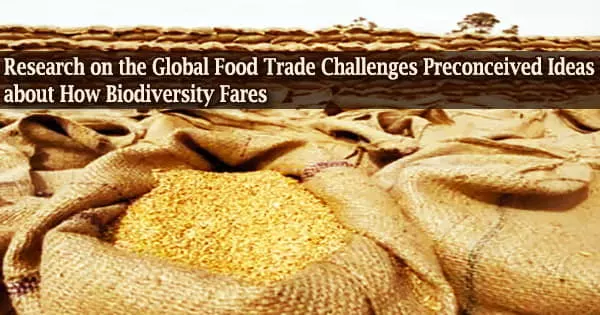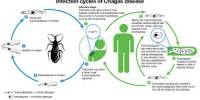Researchers from Michigan State University (MSU) discover that imports from high-income nations enhance biodiversity in low-income nations in this week’s issue of Nature Food.
In order to better understand the interactions and effects of producing food to feed the world while protecting some of the most valuable natural resources, two MSU sustainability scholars from the Center for Systems Integration and Sustainability (CSIS) examined the growing complexity of the global food trade.
The findings of “International Food Trade Benefits Biodiversity and Food Security in Low-Income Countries” defy accepted wisdom: while low-income countries, especially those with biodiversity hotspots, were steadily becoming net importers themselves, importing food from high-income countries was thought to harm biodiversity in low-income countries.
“Understanding the interrelationships between food security and biodiversity is essential to achieve the United Nations Sustainable Development Goals,” said CSIS director Jianguo “Jack” Liu, MSU Rachel Carson Chair in Sustainability and co-author. “Our work seeks to understand how we can achieve global food security to feed a growing population without sacrificing biodiversity in the telecoupled world.”
Countries with expanding populations and economies have greater food needs and frequently import food to meet those needs. The environment and biodiversity may be harmed in countries that are boosting their food exports, which frequently requires turning their land to farms or pastures.
Understanding the interrelationships between food security and biodiversity is essential to achieve the United Nations Sustainable Development Goals. Our work seeks to understand how we can achieve global food security to feed a growing population without sacrificing biodiversity in the telecoupled world.
Jianguo “Jack” Liu
Some low-income nations without biodiversity hotspots, like Ukraine, have dramatically boosted their food exports to hotspot nations. These exports could help mitigate the harm done to biodiversity even more.
In-depth datasets containing 189 food items across 157 nations from 2000 to 2018 were reviewed by Liu and Min Gon Chung, who earned his PhD at MSU and is currently a postdoctoral researcher at the University of California, Merced.
The two provide recommendations, such as include biodiversity costs in food pricing and using the revenue to reduce biodiversity losses. All proposals emphasize the importance of international cooperation to reach agreements that benefit the economy and the environment.
“With increasing the complexity of food trade among countries with and without biodiversity hotspots, more innovative approaches are needed to minimize the negative impacts of global food production and trade on biodiversity in hotspot countries worldwide,” Chung said.
The National Science Foundation, Michigan AgBioResearch, and Sustainable Michigan Endowment Project all provided funding for the project.
















